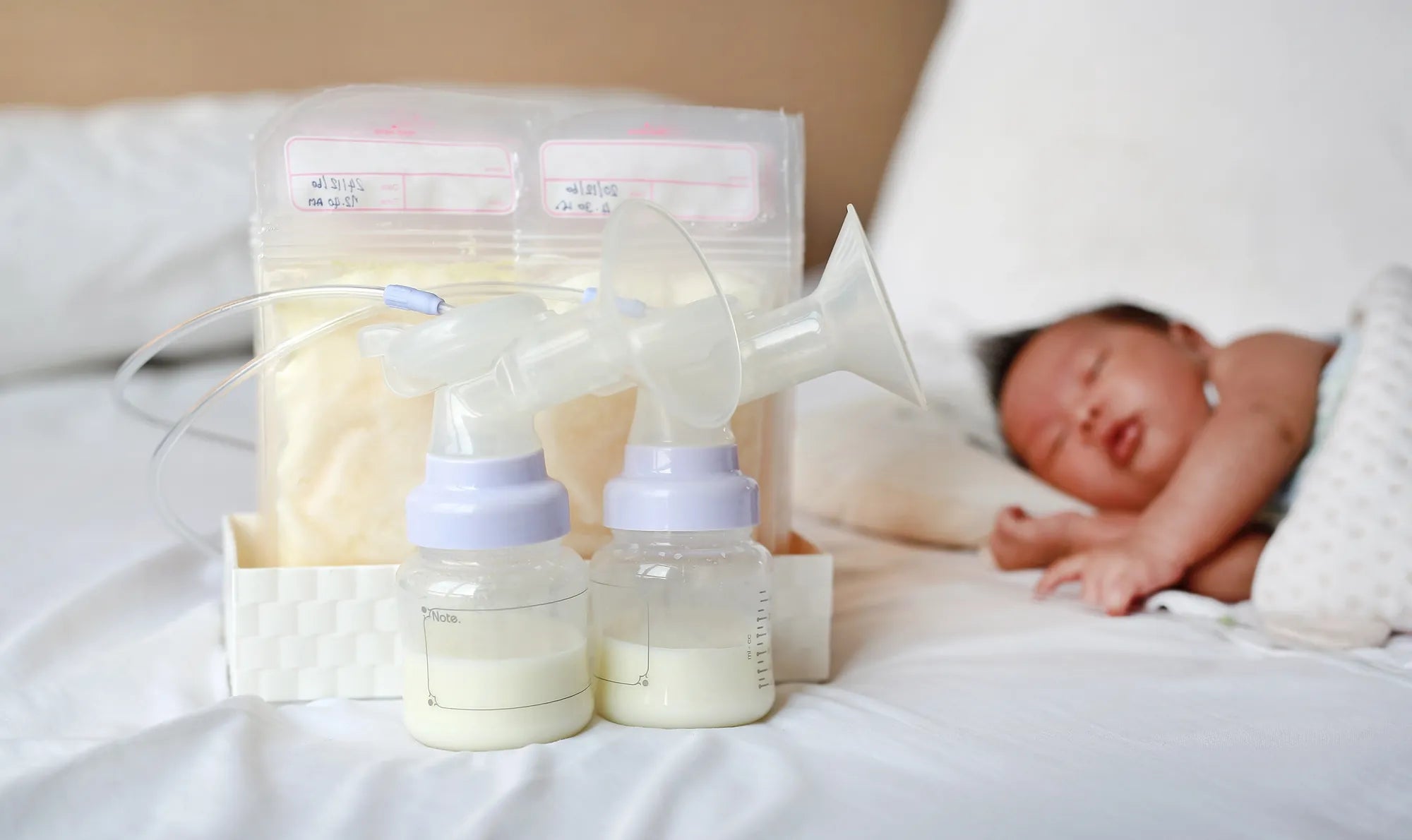Home
Pregnancy, Breastfeeding, and Pumping: The Ultimate Guide for Moms
How Often Should I Pump Breast Milk While Nursing: A Comprehensive Guide

How Often Should I Pump Breast Milk While Nursing: A Comprehensive Guide
Breastfeeding is a beautiful and natural way to nourish your baby, but it often comes with questions and challenges. One of the most common questions new mothers ask is, How often should I pump breast milk while nursing? The answer isn't one-size-fits-all, as it depends on various factors such as your baby's age, your milk supply, and your personal schedule. This article will guide you through the essentials of pumping while nursing, helping you strike the perfect balance.
Understanding the Basics of Pumping While Nursing
Pumping breast milk while nursing serves multiple purposes. It can help maintain or increase your milk supply, provide milk for times when you're away from your baby, and offer relief if your breasts become engorged. However, pumping too often or too little can lead to issues like oversupply or undersupply. The key is to find a rhythm that works for you and your baby.
Factors Influencing Pumping Frequency
Several factors determine how often you should pump breast milk while nursing. These include:
- Your Baby's Age: Newborns typically nurse 8-12 times a day, so you may need to pump more frequently during this stage. As your baby grows and starts eating solids, the frequency may decrease.
- Your Milk Supply: If you have a low milk supply, pumping more often can help stimulate production. Conversely, if you have an oversupply, you may need to pump less to avoid discomfort.
- Your Schedule: Working mothers or those who are away from their babies for extended periods may need to pump more frequently to ensure their baby has enough milk.
General Guidelines for Pumping Frequency
While individual needs vary, here are some general guidelines to help you determine how often to pump breast milk while nursing:
- Exclusive Nursing: If you're exclusively nursing and your baby is latching well, you may not need to pump at all. However, pumping once a day can help build a small stash for emergencies.
- Partial Nursing: If you're combining nursing and bottle-feeding, aim to pump every 3-4 hours to maintain your milk supply.
- Exclusive Pumping: If you're exclusively pumping, aim to pump 8-10 times a day, mimicking a newborn's feeding schedule.
Tips for Effective Pumping While Nursing
To make pumping while nursing as efficient and comfortable as possible, consider these tips:
- Invest in a Quality Pump: A good breast pump can make a significant difference in your pumping experience. Look for one that's comfortable, easy to use, and efficient.
- Create a Pumping Schedule: Consistency is key. Try to pump at the same times each day to establish a routine.
- Stay Hydrated and Nourished: Drinking plenty of water and eating a balanced diet can help maintain your milk supply.
- Relax: Stress can affect your milk production. Find a quiet, comfortable place to pump and try to relax.
Common Challenges and Solutions
Pumping while nursing can come with its own set of challenges. Here are some common issues and how to address them:
- Low Milk Supply: If you're struggling with low milk supply, try pumping more frequently, using breast compressions, and ensuring you're well-hydrated and nourished.
- Engorgement: If your breasts become engorged, pump or nurse more often to relieve the pressure. Applying a warm compress before pumping can also help.
- Time Management: Balancing pumping with other responsibilities can be tough. Consider multitasking, such as pumping while working or watching TV, to save time.
When to Seek Professional Help
If you're experiencing persistent issues with pumping or nursing, it may be time to seek professional help. Lactation consultants can provide personalized advice and support to help you overcome challenges. Additionally, your healthcare provider can rule out any underlying medical issues that may be affecting your milk supply or pumping experience.
Final Thoughts on Pumping While Nursing
Pumping breast milk while nursing doesn't have to be overwhelming. By understanding your baby's needs, your body's signals, and the factors that influence pumping frequency, you can create a routine that works for both of you. Remember, every mother's journey is unique, so be patient with yourself and seek support when needed. With the right approach, you can ensure your baby gets the nourishment they need while maintaining your comfort and well-being.
Ready to take the next step in your breastfeeding journey? Explore more tips and expert advice to make pumping while nursing a seamless and rewarding experience. Your baby's health and your peace of mind are worth it!
Share

